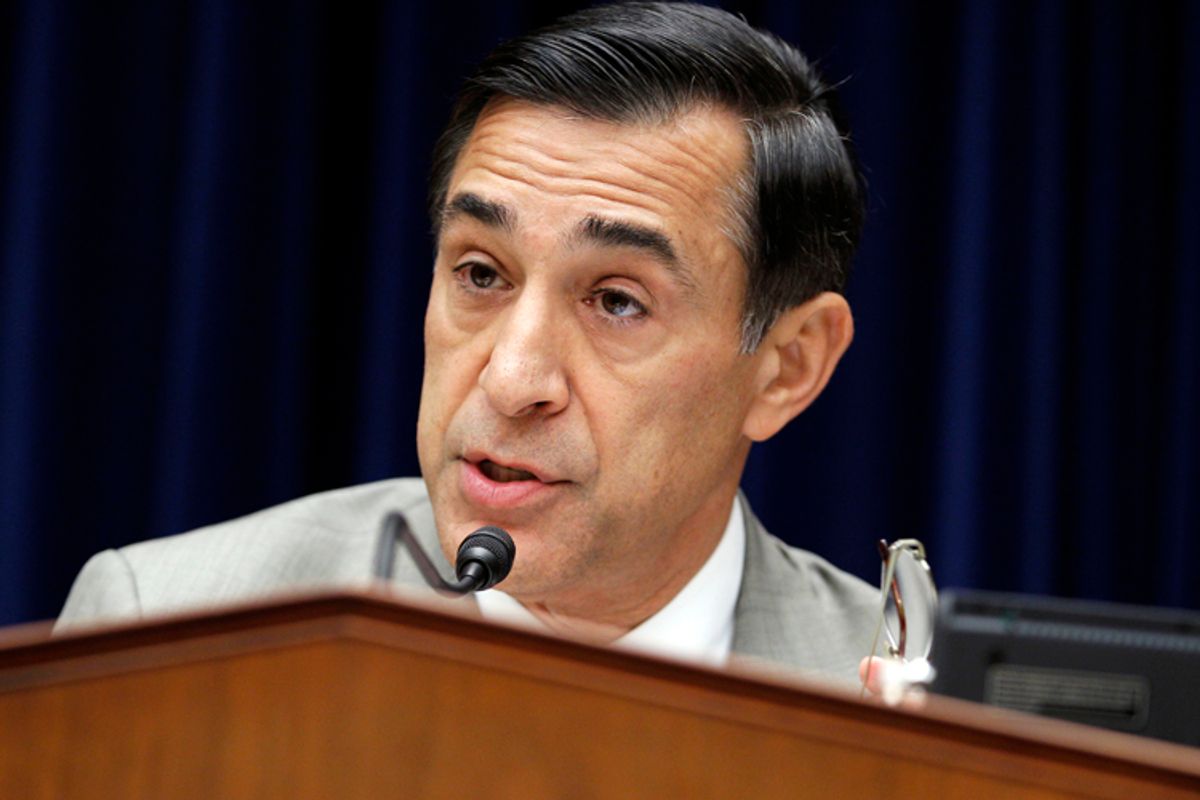There has been so much news this week, from the Supreme Court to the racist television cooking lady to the return of "Crossfire," that some of the political media's old favorite stories have almost entirely disappeared from cable news and the blogosphere. Victims of the news cycle include the trio of "scandals" that gripped official Washington for weeks beginning last month. In particular, the controversy over IRS scrutiny of Tea Party groups has largely disappeared from the headlines. Considering how much of a political gift that particular controversy was to Republicans, you'd expect them to be upset about this fact. But recent revelations have actually given them cause to celebrate the nation's short attention span.
It was revealed this week, in fact, that the entire scandal was essentially a setup. First, acting IRS commissioner Danny Werfel testified that the IRS also scrutinized and challenged groups with names that included "Occupy" and "progressive." IRS documents released by House Democrats supported his testimony. The IG didn't uncover targeting of liberal groups because it wasn't asked to.
The spokesman for the Treasury inspector general noted their audit acknowledged there were other watch lists. But the spokesman added: "We did not review the use, disposition, purpose or content of the other BOLOs. That was outside the scope of our audit.”
We then learned that the entire reason the Treasury inspector general highlighted IRS scrutiny of conservative groups, but not liberal groups, was because the IG had been instructed to do so by Issa.
The IRS affair is now frozen in public opinion amber, with millions of Americans believing not just that the IRS unfairly targeted conservative groups, but also that the White House may have actually directed the targeting. That's just how Issa would like it.
But it now sort of looks like the IRS was just doing its job. Doing it slowly, and at times aggravatingly, for people running nonprofits, but still doing what the agency is supposed to be doing. The scandal now really only makes sense if you don't think explicitly political groups should receive any IRS scrutiny at all. It was already the case, obviously, that many of the Tea Party groups whose applications for tax-exempt status were flagged for review were explicitly partisan and probably shouldn't have qualified for tax-exempt status. The "scandal" was that conservative groups were targeted for greater scrutiny than other groups. That doesn't actually seem to be the case.
By most standards, Darrell Issa is terrible at his job. In his years of dogged investigation of the Obama administration, he has not yet managed to get anyone important to resign. He has uncovered no serious malfeasance. Conservatives should be hugely disappointed in him -- they should, in fact, seek to remove him as chairman of the House Oversight Committee and replace him with someone competent -- but the modern conservative movement prefers volume to efficacy and so Issa's job is safe so long as he shouts loudly and often about how much amazing dirt he is in the process of uncovering.
Conservatives will still trust Issa. They didn't give up on him when Fast & Furious failed to lead to impeachment, and they certainly won't give up on him now. And like I said, the scandal already sort of served its purpose: It hurt Obama politically. The question, still, is whether the objective press will continue to treat Issa's claims seriously, after a month in which he trumpeted the results of a purposefully limited IG audit, released selectively edited transcripts of testimony and generally took everyone for a ride that led nowhere. Alas, you can lie to the political press dozens of times over the course of years and still remain a trusted source, so don't expect much additional skepticism the next time Issa promises something huge.



Shares